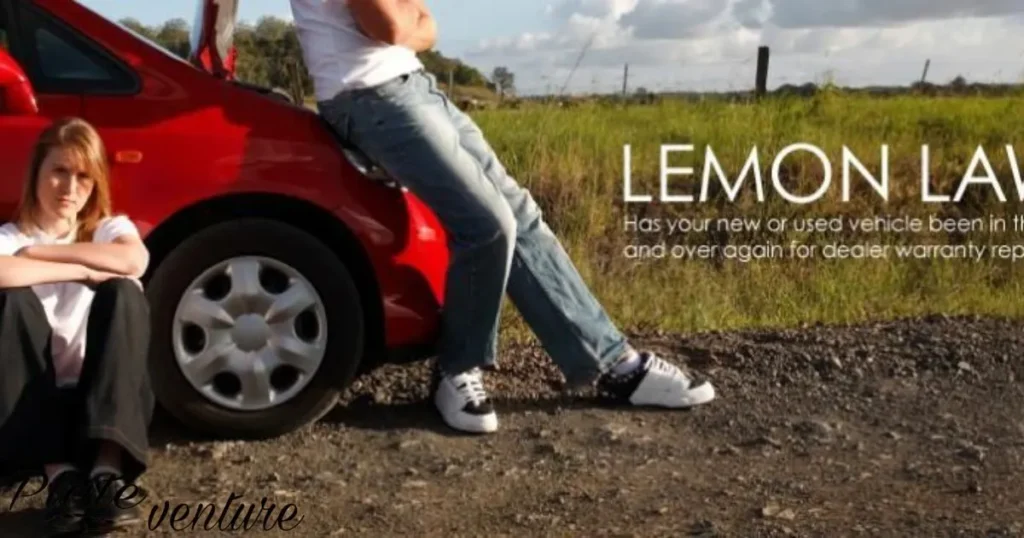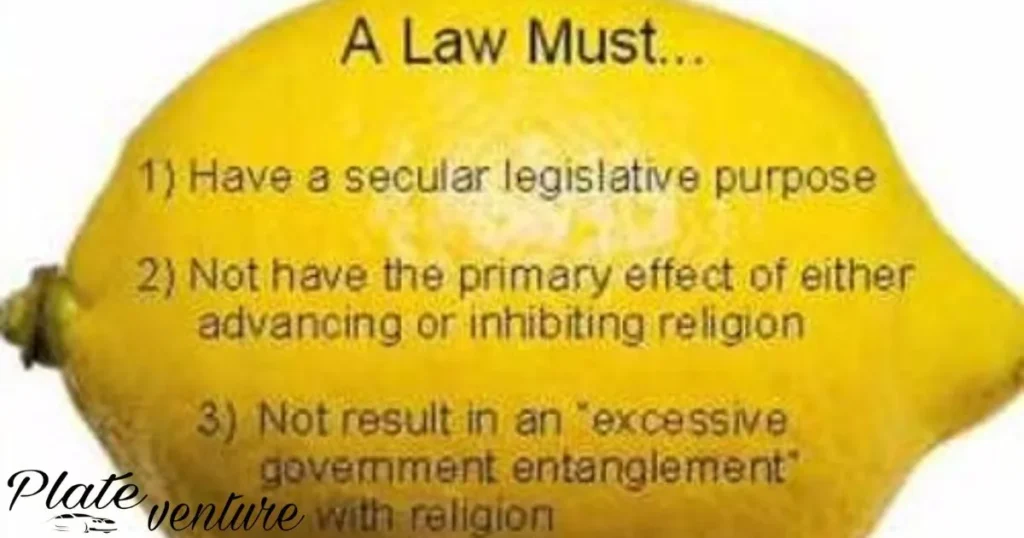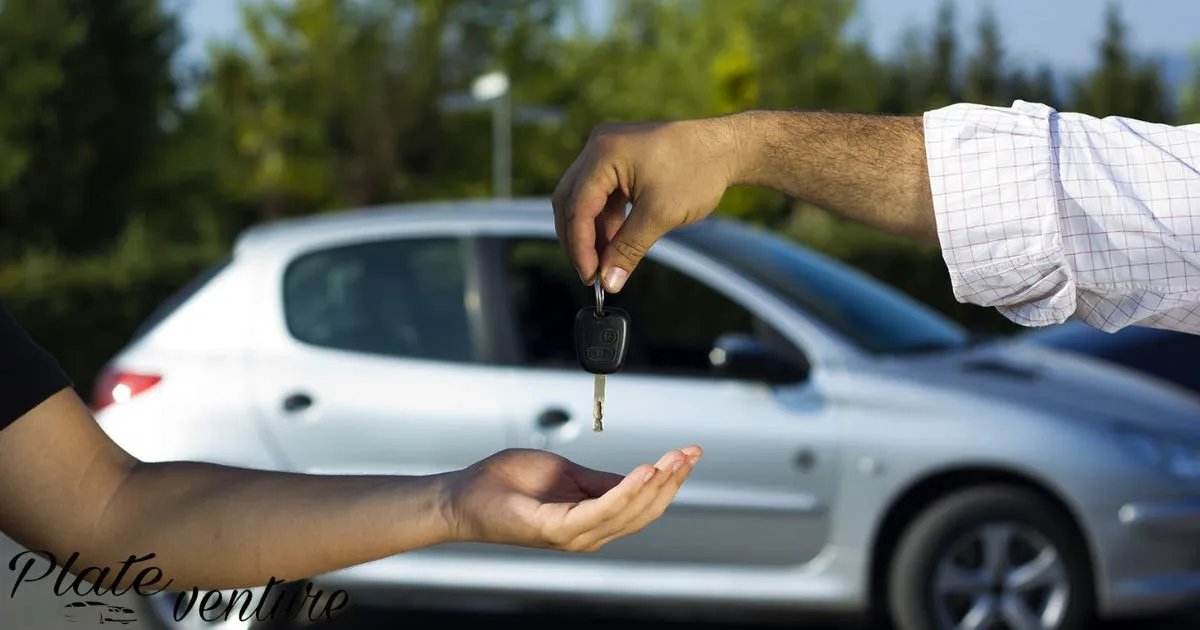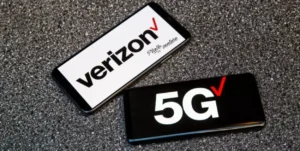Lemon law is a law that helps buyers of new vehicles which turn out to have serious defects. It provides legal rights to get replacements or refunds. However, does this law also cover used cars with issues?
Does lemon law apply to used cars? This is an important question for used car buyers.while lemon laws are meant to protect new car buyers, the situation is different for used vehicles.While lemon laws offer specific rights for new vehicles, the rights are more limited for used cars.
The age and condition of pre-owned vehicles makes defects harder to identify. Whether lemon law protections apply usually depends on various factors such as the vehicle history, mileage, and local state laws regarding used car sales and warranty coverage. Consumers need to carefully review their rights based on these criteria.
What is ‘Lemon Law’?
Lemon law helps buyers of new vehicles that have defects. It protects them from cars with big problems found soon after purchase. The law gives buyers rights to replace the “lemon” car or get their money back. Customers must first work with the car maker to try and fix the issues. If the problems continue after repairs, lemon law allows buyers other options.
They can sue the company to return the car or receive a refund. This helps when new vehicles turn out to be a financial burden from repeated repairs. Most states have lemon laws today. These laws aim to balance what is fair for both car buyers and manufacturers. Buyers get effective warranty coverage when things go wrong.
And makers still profit from most sales while addressing issues on the few problem vehicles. Lemon laws establish fair legal processes that both parties must follow. They create uniform rules around new car warranties nationwide.
How do ‘Lemon Laws’ protect new car buyers?”
Lemon laws give new car buyers certain rights if their vehicle stays in the shop for repairs too long. What counts as “too long” differs based on each state’s rules. But it is usually around 3 to 4 repair attempts for the same problem or the car being out of service for 30 days. Buyers must formally notify the automaker in writing about the ongoing issue.
If attempts to fix the defect continue failing, buyers can then sue the company under lemon law. Courts review whether the problems could truly not be remedied or the car lost value due to repeated repairs. Lemon laws offer a way to get help when a new vehicle purchase turns into a money drain from constant repair work. The protections aim to make buyers whole again from defective cars.
Do ‘Lemon Laws’ also cover used vehicles?”
While lemon laws mainly focus on new cars, the rules differ regarding used vehicles. Some states have “implied warranty” laws that offer limited protection. However, most lemon laws specifically do not directly apply to buying pre-owned cars.
Without explicit promises from the dealer, issues can be harder to prove were factory defects and not prior problems. Past owners and unknown service history make defects tricky to attribute for used purchases over time. Lemon laws aim to protect new buyers and their direct relationships with automakers.
Since used cars were previously driven and owned, defects could come from prior wear, Is A Deposition In Law not original glitches. Fairly applying lemon law would get complex with unknown used car history. The laws thus center on new vehicle sales with direct manufacturer warranties for simpler remedies when problems promptly appear.
Which Lemon Laws apply to used cars purchased in my state?”

Car buyers must research the particular lemon law statutes and implied warranty terms that exist where they live. Regulations significantly differ state-by-state regarding what protections apply to used vehicle purchasing. Some locations only allow lemon law remedies if a dealer expressly promises coverage themselves and any issues arise within the stated period.
Otherwise, legal theories like contract or consumer law breaches may provide varying recourse depending on the jurisdiction. Knowing the specific local regulations guides consumers pursuing solutions on defective used cars. Standard lemon laws typically do not directly help but similar concepts can apply.
While uniform national used-car lemon laws don’t exist, some states offer consistent buyer rights regardless of new or used status. Others make distinctions or have no special rules beyond as-is sales.
Thoroughly examining a state’s commercial codes helps buyers understand any extra consumer protections included with there pre-owned vehicle buy. Proper research clarifies options when problems arise after a used car purchase.
When does a used car qualify as a ‘lemon’ under the law?”
For lemon law coverage to potentially apply in states where it may cover used vehicles, the automobile usually needs to show a defect that impacts safety or normal operation. This issue must develop within a limited timeframe like 30 days or 1,000-3,000 miles from the purchase date.
The buyer also must demonstrate reasonable attempts to get repairs done by keeping documentation of repair orders. Not all issues or malfunctions trigger lemon laws, which typically demand the defect not be resolvable even after a “fair number” of repair tries as statutorily set.
Used car age, miles and other parameters like extra warranties may factor into what qualifies as a “lemon” in particular state lemon laws or if alternative legal theories could remedy serious problems.
Research clarifies the specific eligibility standards for defective vehicles where someone lives before complaining or suing to invoke any applicable rights and processes. Not all malfunctions are “lemons” under the set legal definitions.
What age and mileage restrictions are there in ‘lemon laws’ for used cars?”
Most areas with some lemon law application to used vehicles impose limits based on age and prior total miles on the odometer. Common cut-offs fall within vehicles being less than 5 to 7 model years old and under 75,000 to 100,000 total miles to qualify. These restrictions aim to exclude cars with a significant degree of prior normal deterioration that could explain later defects.
A few states have no restrictions if dealers expressly guarantee older or higher mileage used cars and issues arise within the coverage period. Others may set maximum time frames like under 10 years or certain mileages as eligibility thresholds for the extra buyer protections. Consumers should verify any requirements for their location’s implied warranty coverage on different used automobile criteria.
Restrictions balance holding sellers responsible for verifiable new problems against long-past ordinary wear issues. They also prevent litigation over very old, high-mileage cars unlikely still troubled by manufacturing defects. Researching a state’s precise age and mileage cut-offs determines whether a particular used car purchase could even qualify for lemon law review if issues develop.
Does the ‘lemon law’ still apply if I buy a used car ‘as is’?”
When someone purchases a used vehicle strictly in an “as-is” condition, with no warranty of any kind expressly provided, lemon law remedies typically do not apply. Buying as-is means the consumer agrees to accept the exact vehicle and all potential unknowns in its present state without any assurances of quality or performance.
Some areas permit as-is disclaimers to override protection afforded by implied warranty legislation regarding merchantability or fitness. Consumers in such locations would have only minimal recourse and only regarding non-safety defects that fail commercial reasonableness standards.
It is important for buyers to know the pertinent local laws on as-is clauses and whether they impact post-purchase rights. As-is purchases relinquish all warranties and expectations of remedy should later malfunctions arise.
Unless states mandate disclosures about as-is effects, buyers benefit to inform themselves on how such waivers factor into any state lemon laws regarding used cars or potential implied warranty claims in their area ahead of such final “agreeing is” deals. Research avoids post-sale surprises over legal responsibilities following known as-is pre-owned vehicle transactions.
What protections are provided if the dealer offered a limited warranty ‘by law’?”
Particular states may demand dealers provide some basic protections on used car sales through mandating limited collateral coverage such as a powertrain warranty. If such a warranty is extended, lemon law could cover verifiable defects emerging within the stated scope and timeframe of the guarantee.
The buyer would need to show repairs were unsuccessfully attempted matching the warranty’s terms before pursuing legal remedies. However, the protections remain narrower than fresh automobile lemon laws and rely on that state’s specific statutes balancing implied versus formal express assurances for pre-owned buyers.
Under such a provision, dealers carry some accountability for addressing sudden major component failures or problems promptly reported instead of purchasers bearing all risk. Consumers could argue lemon law should also apply if qualifying defects arose and were not properly addressed under the contractual protection terms.
Does my state have any implied warranty ‘laws’ for used vehicle sales?”
Most jurisdictions recognize some level of implied warranty of merchantability for used car sales regarding promptly-apparent safety defects based on consumer expectations of basic transportation function. However, coverages vary between states on whether implications also demand reasonable repair opportunities for non-safety problems or solely address core operational issues. Comprehensively reviewing a state’s commercial and consumer affairs legislation offers the clearest insight into any implied standards guiding rights following used automobile purchases in that location.
While leaving room for express contract terms to further define assurances, implied laws set a baseline fairness floor for surprise problems not evident before sale finalizing. Regulations aim to balance buyers and sellers fairly where no guarantees were directly stated. Research determines if protections lean broad or narrow for a consumer’s specific situation in their state.
Which types of defects would potentially be covered ‘by lemon laws’?”
Lemon laws aim to address serious factory defects that impact customer safety or normal vehicle operation. Issues such as faulty brakes, defective engines or transmission problems could qualify as they prevent operating or pose dangers. On the other hand, mere cosmetic flaws or other minor glitches owners can live with likely fall outside lemon law domains. The defects must inhibit regular driving and persist despite appropriate repair efforts over a reasonable period.
Coverage evaluation considers a defect’s severity level and whether it hinders core usability. Repair costs approaching or exceeding a vehicle’s value represent situations where legal remedy seeks under lemon laws. Consumers bear the responsibility to prove issues stem from genuine production defects, not negligence or subpar maintenance on their own part.
Are issues due to ‘normal wear and tear’ protected ‘by lemon laws’?”
Ordinary wear-and-tear effects resulting from standard usage and time tend to fall outside lemon law scope. Standard tire rotations, fluid changes and preventive maintenance as vehicles age typically do not label manufacturers as liable or trigger lemon claims.
However, components unexpectedly deteriorating too rapidly for a vehicle’s mileage or precursors of later problems currently present could still satisfy lemon laws. The laws target actual durable goods flaws compromising utility or costs, not inevitable aging consequences. As long as owners reasonably care for cars, premature failures may indicate coverable anomalies.
Can ‘lemon laws’ help if the used car was certified?”
Certification designations imply inspections found no major issues ripe to surface and sometimes involve limited warranties for added confidence in used vehicles. This does not guarantee perfection, yet lemon laws may still cover certified pre-owned cars if major factory defects arise within promised coverage periods. Buyers depend more on dealership reputations upholding certifications than normal as-is used purchases lacking assurances.
Certification aims to lessen risks for buyers, so warranties stemming from advertised benefits hold some weight under lemon law if manufacturers refuse responsibly addressing covered problems. Certified status alone does not preclude consumer rights regarding non-apparent factory flaws.
Do ‘lemon laws’ consider pre-existing problems caused by past owners?”
For used vehicle lemon claims, owners confront proving issues stem specifically from production defects versus resulting from past drivers’ negligence or non-dealer repairs over time. Simply discovering defects soon after a purchase does not automatically indicate new problems rather than aging vehicles. Documentation such as service records helps argue flaws manifested solely due to factories. The more past owners reasonably get ruled out as causes strengthen cases.
Explaining clearly how preceding treatment did not induce defects remains challenging due to varied state lemon laws covering used vehicles purchased without direct manufacturer relationships similar to brand-new cars. Strong evidence supports attributing qualifying defects exclusively to original quality defects.
What steps are required ‘by lemon law’ to pursue a claim on a used car?”
State lemon laws commonly involve properly documenting defects and repair attempts through certified letters to dealers or factories for certified pre-owned vehicles. Records show issues persisted despite servicing, qualifying for legal relief. Owners must generally allow repair opportunities spanning weeks, not days, due to used vehicles’ unpredictable histories.
If negotiation or voluntary compliance with warranty obligations fail, filing detailed complaints with consumer protection agencies or small claims courts reviewing sales contract adherence may achieve resolution. However, more complex used lemon law cases may require an attorney’s expertise navigating state statutes and proving liability for production-based defects.
Is mediation/arbitration mandated ‘by lemon laws’ before a lawsuit?”
Most states demand either mediation attempts or completing state-run lemon law arbitration as prerequisites before full lawsuits over vehicle defects. These alternatives deliver non-adversarial resolution while tapping mechanical knowledge. Individuals maintain litigation rights if dissatisfied with non-binding settlement recommendations.
Mediation and arbitration aim to alleviate expenses and hasten justice dispensation compared to courtroom proceedings. But attorneys continue advising even if certain dispute amounts allow direct small claims filing without such prerequisites. Their guidance helps maximize chances for desired outcomes.
What types of compensation are possible ‘under lemon laws’?”

Typical lemon law remunerations include vehicle replacements, refunds, or reimbursements covering monthly payments throughout defective periods, depending on remedy preferences. Potentially included also are interest and reasonable attorney fees/expenses for properly enforcing rights administratively or judicially if needed. Compensation goals involve making owners whole again financially and with dependable autos as intended without troublesome “lemon” experiences.
While lemon laws do not impose punitive awards, civil legal options remain available if after attempting administrative solutions through mediation/arbitration, defects go unaddressed satisfactorily between dispute parties. Full compensation calculates all costs associated incident to the vehicle’s defect.
How long do ‘lemon laws’ allow you to file a used car lawsuit?”
States establish time constraints between 6 months to 2 years for filing new vehicle lawsuits after purchase or when mileages meet thresholds, such as 12,000-24,000 miles. Used car lemon suit deadlines generally fall shorter between 90 days to 1 year from purchase or repair attempt finality. While reasonable repair periods may also pause these clocks. Thoroughly comprehending individual state rules prevents squandering the limited windows.
Collecting documentation and consultations help if surpassing settlement avenues requires court action within prescribed periods, before staleness bars claims. Strict adherence avoids unintentionally waiving pursuit and receipt of lawful redress.
Where can I learn more about individual state ‘lemon laws’?”
State consumer protection websites, bar association referrals, local small claims court clerks and Better Business Bureaus represent starting resources. Dealer regulatory bodies sometimes outline buyer protections. Car manufacturers routinely share lemon law guides, too.
Public libraries hold compiled state law volumes explaining respective vehicle quality acts. Free search engines permit directly accessing full legislations. Speaking with experienced consumer legal assistance knowledgeable about local motor laws and dispute resolutions offers useful counseling applicable to unique situations.
Should I consult an attorney about my ‘lemon law’ rights and options?”
While overviews summarize key points, consulting an attorney personalized guidance due to variations between used and new vehicle sales scenarios. Lawyers help clarify interpretation nuances to specific cases, untangling unknown history complexities. Free consultations evaluate claims’ strengths before mediation/arbitration, litigation or other pursuits demanding expenses.
For larger disputes exceeding jurisdictional limits, representation ensures correctly navigating relief paths demanded administratively or judicially to obtain fair outcomes. Their expertise avoids pitfalls risking rights forfeiture from untimely or improperly drafted filings. For legitimate automobile woes, consulting counsel equips consumer understanding available choices case-by-case.
FAQ’s
What problems constitute a lemon in Illinois?
Problems that cannot be fixed after 4 repair attempts or the vehicle is in the shop for 30 total days.
What mileage/age limits apply in New York?
The lemon law covers vehicles less than 2 years old or with less than 18,000 miles.
How many repair attempts are needed in Washington?
The same problem must occur at least 3 times or the vehicle must be in the shop over 30 total days for repairs to qualify.
What is covered under Indiana’s new vehicle lemon law?
Indiana’s law applies to new vehicles that cannot be used for their intended purpose within the first year or 12,000 miles due to issues.
Do buyers have used car protection in Indiana?
No, Indiana does not have a used car lemon law like some other states.
Conclusion
The application of the Lemon Law to used cars is a crucial consideration for consumers seeking protection against defective purchases. Understanding the specific conditions and regulations surrounding the Lemon Law ensures that individuals are aware of their rights when dealing with faulty used vehicles.
It’s essential to research and consult local laws to navigate potential issues and make informed decisions when facing challenges with a used car purchase. For those grappling with the question, “Does Lemon Law apply to used cars?” it’s advisable to stay informed and vigilant.
While the specifics may vary by jurisdiction, being aware of your rights empowers you to take appropriate action if you find yourself dealing with a lemon. Remember, knowledge is key in safeguarding your investment and ensuring a smoother experience in the realm of used car purchases.








